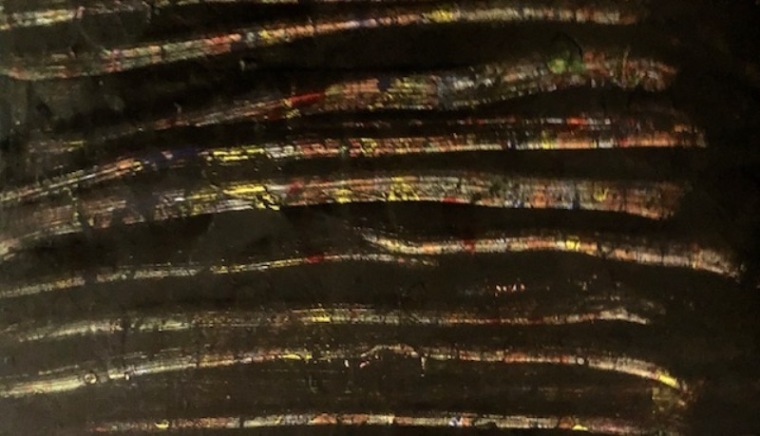
Mega-data continues to be on the media as the Government has applauded its new legislation to the Senate along with calls of caution by the media having their sources revealed through this IT mechanism.
Even Peter Cresta on a Q&A program who spent 446 days in an Egyptian prison as a journalist then being exonerated and then deported called for much caution with the mega-data legislation in relation to journalists.
We've got that, kind of understood the issues, but on the other hand realise it is no surprise at all with telephone and internet data of every Australian being recorded including Facebook and Twitter by the Australia's intelligence community.
These recent raids in Melbourne and Sydney on probable terrorist cells reveals to us all that someone, somewhere in authority has tabs on a wide range of communications. It would need to have. The problem with 9/11 was that they were not picked up and recognised for what they were.
There have been numerous media stories on all of this. Such proposals are not new for such ambit claim from the intelligence agencies. Britain too has had this debate. From what can be understood, it has become increasingly difficult to monitor the targets of the intelligence agencies 'online' due to the proliferation of new tools such as social media, cloud computing and internet communications utilities such as Skype. These data retention schemes have been a subject of much global debate.
Moreover part of it has now become law. But much of what we do and say is already been recorded in all sorts of ways and it's so common place we take little notice.
The contentious parts have been discussed and heard by Government enquiries of one sort or another over these past three years. This has been a drawn out process.
We might do well to be reminded what Victoria's Acting Privacy Commissioner, Anthony Bendall, stated in 2012, dubbing the proposals ''characteristic of a police state'', arguing ''it is premised on the assumption that all citizens should be monitored. Not only does this completely remove the presumption of innocence which all persons are afforded, it goes against one of the essential dimensions of human rights and privacy law: freedom from surveillance and arbitrary intrusions into a person's life,''

Some current examples
Our local Post Office has the video camera functioning and while waiting in line O can see myself and make any attire adjustments necessary. Likewise my local bank. The local ATM has a similar camera set up and I often turn to my best side for the feature promotion. Likewise many shops have such video cameras.
Our motor vehicles get on camera when any one of us go through a red light camera crossing. The various State traffic authorities have us on camera to better run the flow at peak hour. Airports too have these running and some major terminals have an X-Ray situation where everything is revealed under what we wear.
London has had video camera on every street corner for some time now and from what can be understood from its proponents, the street crime rate has fallen dramatically. It's claimed that those who visited London for the Olympics were safer than at any other time the city's history – along with the upcoming Paralympics.
Aircraft's Black Box
Moreover we've recognise the value of this professional surveillance techniques with the “black box” in aeroplane cockpits which have proven instrumental in discovering why an aircraft crashed and the actions and words of the pilot, co-pilot and engineer.
Like the 'recording tape' on railway locomotives. We might recall the 1978 Granville Railway disaster where this tape demonstrated that the train driver did everything right. He was within the speed limit, his locomotive was running well, each and every component as recorded on the recording tape illustrated that it wasn't the locomotive or the train. Rather, it later proved to be the track.
There is more still. Television has been in on this game for years. Who can remember Sylvania Waters a television program that featured every aspect of a Sydney families life, and similar other such live-to-air entertainment. Big Brother and that whole television genre has been around for years. Many are spell bound watching someone sleep, perhaps hoping they might turn over and fall off the bed!
None of these 'retention' ideas are new. They are thousands of years old. After a life time in Christian ministry he has himself preached from the many Bible references that detail how what we do and say and think is recorded!
Traumatic images
This is a traumatic subject for many, but there will be a judgement call of all these things. There is almost a plea by everyone of us for this to occur, as so many cruel injustices have come our way. The human spirit longs for such an accounting.
The good news for the follower of Jesus is something else again. The imagery of the New Testament is presented something akin to a court situation. When a person's life is revealed (on the big screen as it were), for the believer it is a time of rejoicing as Jesus steps forward as their advocate, claiming that person as His own.
These images from the Scriptures express these things in such a manner that those who follow the Lord Jesus might be comforted and might grasp the spiritual gravity God places upon the joy of redemption.


Dr Mark Tronson - a 4 min video
Chairman – Well-Being Australia
Baptist Minister 45 years
- 1984 - Australian cricket team chaplain 17 years (Ret)
- 2001 - Life After Cricket (18 years Ret)
- 2009 - Olympic Ministry Medal – presented by Carl Lewis
- 2019 - The Gutenberg - (ARPA Christian Media premier award)
Gutenberg video - 2min 14sec
Married to Delma for 45 years with 4 children and 6 grand children